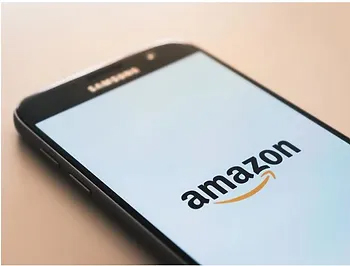Long after Amazon has settled into its new Virginia headquarters, people will still be shaking their heads at the spectacle of America’s most valuable company leaving New York City in the dust.
This is, as one cable network calls it, “the beating heart of business,” a thriving metropolis. Setting up shop here is a privilege. Our workforce is elite, our infrastructure flawed but unparalleled and we are beginning to give Silicon Valley a run for its money as a high-tech hub, thanks to the number of STEM students who graduate here and want to stick around.
Some will therefore argue we never should have offered Jeff Bezos economic incentives to set up his vaunted H2Q here, falling into his trap of showering gifts to competing with the likes of Austin, Newark, Miami and Indianapolis. Perhaps this bended-knee approach weakened our brand, while strengthening his.
Mayor Bill de Blasio said you have to be tough to make it in New York City, and not be afraid of union leaders and local politicians, who don’t have the power of the purse strings but merely a street corner pulpit and the votes of their district constituents behind them.
But maybe Amazon was tougher than we think. Maybe the whole H2Q extravaganza was meant as a massive marketing campaign to boost the company’s profile and market capitalization. Maybe they took a page from President Trump’s playbook and learned how to maximize free publicity for power.
In an interview with Bisnow, Amazon’s global head of economic development, Holly Sullivan, said she had no regrets about the unprecedented contest and all the time and energy evidently wasted on the New York deal.
“When you look at it, the investment and the commitment that we’re making — I think we’re the only company that has made this type of jobs commitment ever,” she said. “And you want to make sure that you have those good relationships today, but also five to 10 years from now. We felt very confident that we’re going to have those relationships with Arlington County and the commonwealth [of Virginia]. We didn’t feel as confident in New York.”
“When you look at it, the investment and the commitment that we’re making — I think we’re the only company that has made this type of jobs commitment ever,” she said. “And you want to make sure that you have those good relationships today, but also five to 10 years from now. We felt very confident that we’re going to have those relationships with Arlington County and the commonwealth [of Virginia]. We didn’t feel as confident in New York.”
Insisting the company would do absolutely nothing differently with the benefit of hindsight, Sullivan said the process built “relationships with economic developers and community leaders all across North America. It’s been a great process for, I think, everybody, and I think communities had a chance to learn about themselves too.”
This is great posturing for the company: Far from conceding that they let themselves be bullied out of the deal, they are not only emphasizing how much they learned but how they helped others simply by talking to them. Brilliant!
Sullivan is not wrong when she says Amazon is unique in its ability to generate activity and create jobs — indeed the reason their projected tax break was so large is because an existing formula was applied to 25,000 jobs over a period of 12 years. As a parting shot, Sullivan says “We felt very confident that we’re going to have those relationships with Arlington County and the commonwealth. We didn’t feel as confident in New York.”
By picking up its ball and walking off the field, Amazon fires a proverbial shot across the bow of negotiating partners. Even in cities where socialist protesters and NIMBY activists don’t hold as much sway, city officials and economic development authorities will have to work twice as hard and proffer even more goodies, knowing the deal isn’t solid until ground is broken.
According to some analyses, the deal would cost taxpayers far more than Amazon let on. But the company isn’t just a generic insurance company or mid-level retailer concern, and on top f the new and relocated jobs the LIC HQ2 promised hundreds, maybe thousands more in construction and other related activity. But as many conservative observers have said, the lesson for New York and other officials is to cut taxes for all businesses and create a pro-business environment across the board to strengthen their hand in future negotiations.
As Holman Jenkins Jr. wrote in the Wall Street Journal post-deal collapse, “The world would be a better place, and New York would do better by its long-suffering job creators, if it spent less time dishing out favors to a handful of big-name companies.” Rather, he said, make the city overall more hospitable, especially to job-creating small businesses.
The backlash among the Big Apple’s citizenry seems appropriately focused on the naysayers, led by Rep. Alexandria Ocasio Cortez, who seemed to perceive deal as a cash payment to Amazon rather than a break on the projected billions of revenue. With so many shaking heads, the rebels emerged as the tail that wagged the dog.
But if ordinary New Yorkers want to vent their ire against Amazon for the unilateral breakup, they can always take their online shopping elsewhere. Rival Jet.com has some nice deals, and the Walmart subsidiary has been bolstering its New York ties, recently partnering with the Fulton Fish Market to deliver daily fresh seafood.
As for myself, I’m sticking with Amazon Prime, which is still the best way to secure goods online cheaply and efficiently. I have not skin in the game as an investor or partner, but as a New Yorker and member of the business community, as the company continues to grow and thrive and tax full advantage of opportunities — the American way
— I will continue to tip my hat to them.
About the author:
Eli Verschleiser is a Financier, Philanthropist, and Child Advocate. In his Philanthropy, Mr. Verschleiser is on the board of Trustees for the American Jewish Congress, Co-Founder of Magenu.org, & President of OurPlace, a non-profit organization that provides support, shelter, and counseling for troubled Jewish youth. Mr. Verschleiser is a frequent commentator on political and social services matters. Follow Eli Verschleiser on Twitter: @E_Verschleiser


